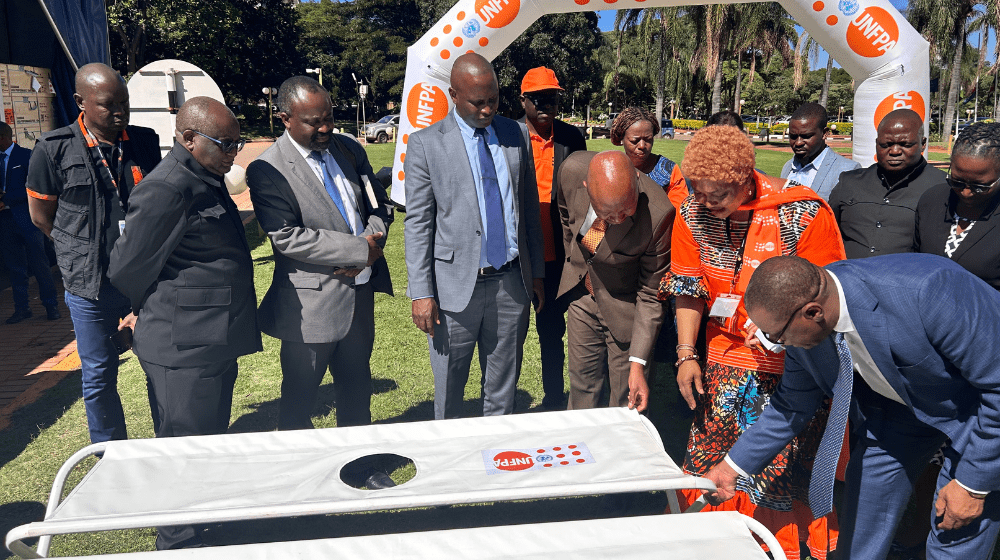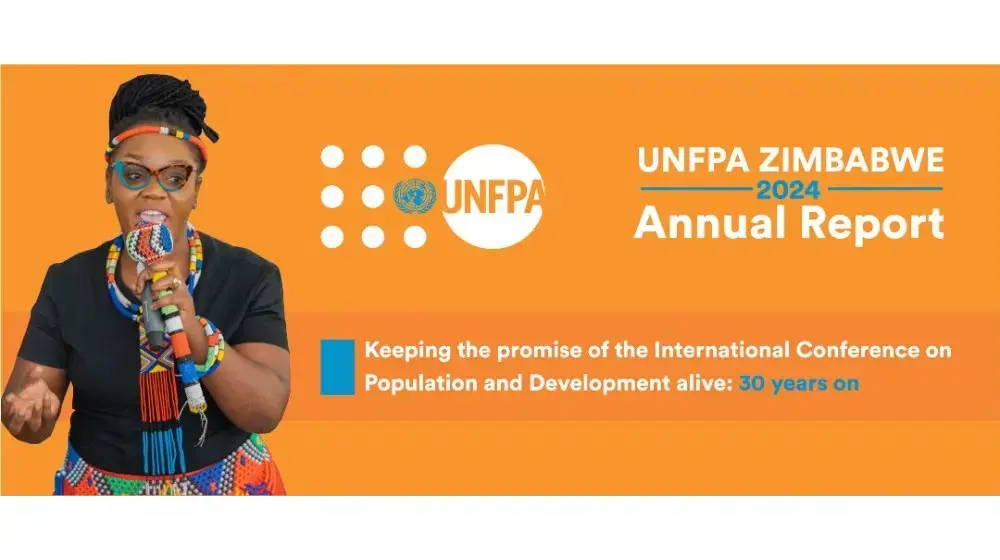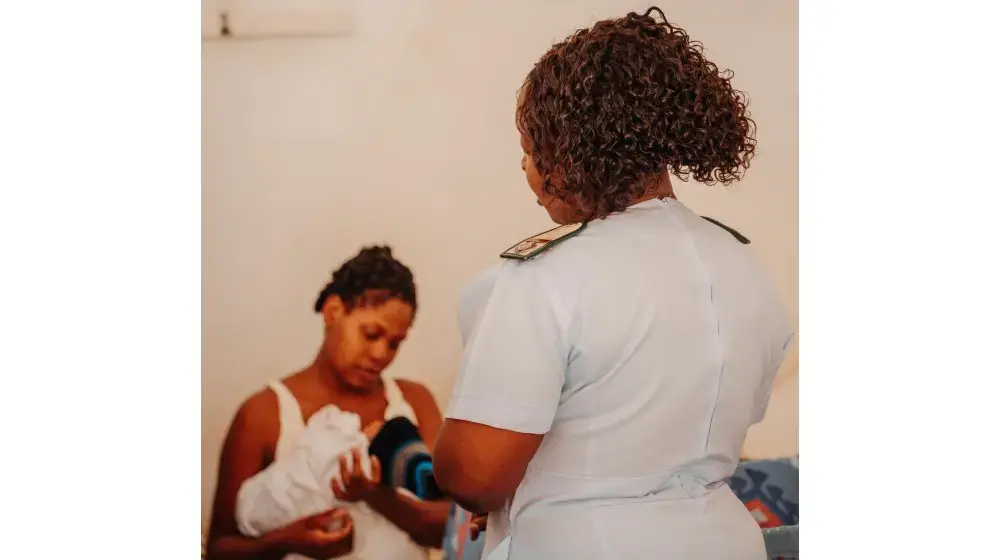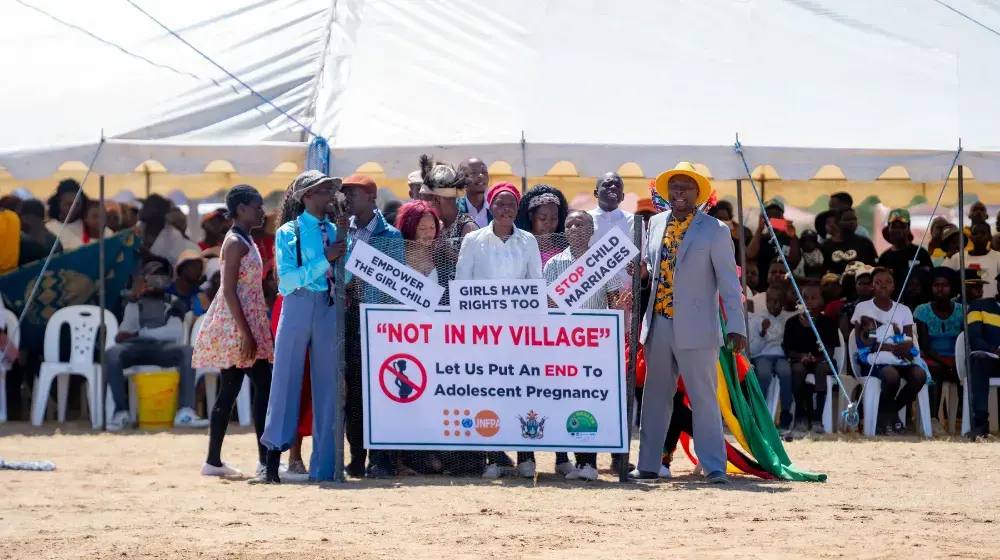Zimbabwe has faced numerous cholera epidemics in recent years, with the most severe outbreak in 2008 recording 98,585 cases and over 4,300 deaths. In February 2023, another cholera outbreak emerged, starting in Chegutu District and spreading to 41 districts across all 10 provinces, including 17 identified cholera hotspots. By January 31, 2024, there were 21,835 suspected cases, 2,316 confirmed cases, and 416 deaths. In response to this crisis, UNFPA took decisive action to support pregnant mothers and enhance knowledge on managing cholera during pregnancy.
Distribution of Dignity Kits to Pregnant Mothers
UNFPA provided a total of 516 dignity/hygiene kits and 520 maternity kits to pregnant mothers in the worst-affected areas. These kits included essential hygiene items such as soap, sanitary pads, and clean underwear, which were crucial for maintaining health and dignity during the outbreak.
“Dignity kits are vital for the health and well-being of women during crises, Our goal is to support pregnant mothers who face increased risks during this cholera outbreak,” said UNFPA Representative, Ms. Miranda Tabifor during the Cholera supplies handover ceremony where UNFPA also handed over 30 Cholera beds , disinfectant and some water treatment supplies.
Enhancing Knowledge on Managing Cholera in Pregnancy
In addition to distributing dignity kits, UNFPA scaled up efforts to educate healthcare workers and communities on managing cholera in pregnancy. Pregnant and breastfeeding women are especially vulnerable to severe dehydration and complications from cholera, including maternal death, spontaneous abortion, preterm labor, and intrauterine fetal death. Literature indicates fetal loss rates during cholera episodes range from 2% to 36%.
UNFPA conducted training sessions for healthcare providers and community health volunteers on best practices for treating and preventing cholera, with a focus on pregnant women. These sessions aimed to improve early symptom recognition, emphasize the importance of prompt medical care, and teach preventive measures.
Collaborative Efforts for a Comprehensive Response
UNFPA’s response was part of a larger effort involving the Zimbabwean government, other UN agencies, and local NGOs. This coordinated approach aimed to maximize resources and ensure effective implementation of interventions to support the most vulnerable populations.
Harare, which had the highest number of suspected cases (7,590 as of January 31, 2024), declared a state of emergency. The government, along with local and international partners, worked to mobilize resources to support the cholera response plan.
The current cholera outbreak underscored the importance of a coordinated and sustained response. UNFPA’s initiatives to distribute dignity kits and enhance knowledge on managing cholera in pregnancy were critical steps in mitigating the impact of this public health crisis.





